[Newsbits] 1.03.2024: Tawi Festival 2024, 13th WTO Ministerial Conference (MC13) & More
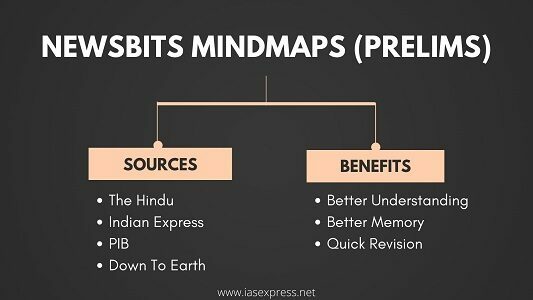
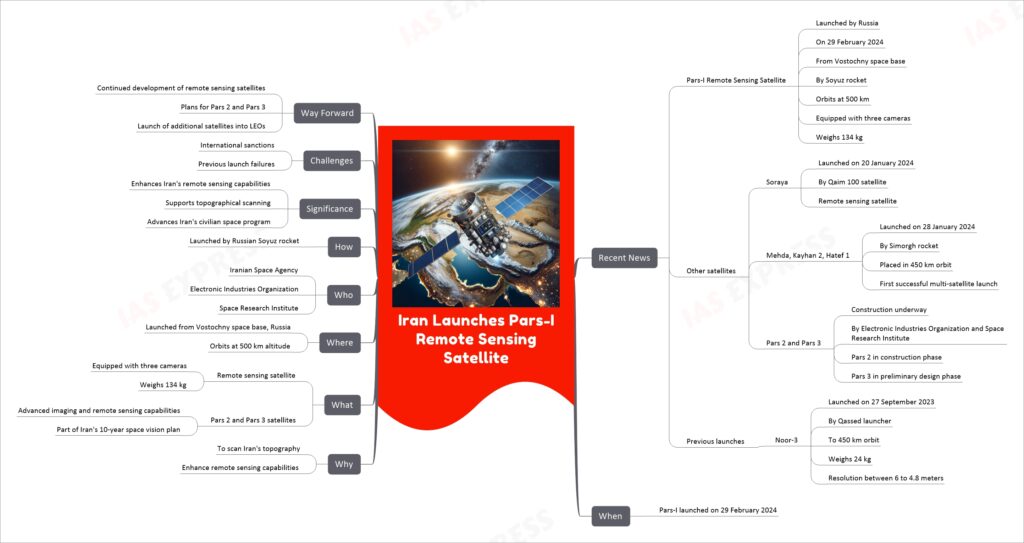
Iran has successfully launched the Pars-I Remote Sensing Satellite into a 500 km orbit using a Russian Soyuz rocket from the Vostochny space base. This satellite, equipped with three cameras, is part of Iran’s efforts to enhance its remote sensing capabilities and scan the country’s topography. In addition to Pars-I, Iran has been advancing its space program with the construction of Pars 2 and Pars 3 satellites, aiming to launch several satellites into low Earth orbits (LEOs) in the coming months. Despite facing international sanctions and previous launch failures, Iran’s space endeavors, including the successful launch of other satellites like Soraya, Mehda, Kayhan 2, and Hatef 1, signify its commitment to developing a robust civilian space program.
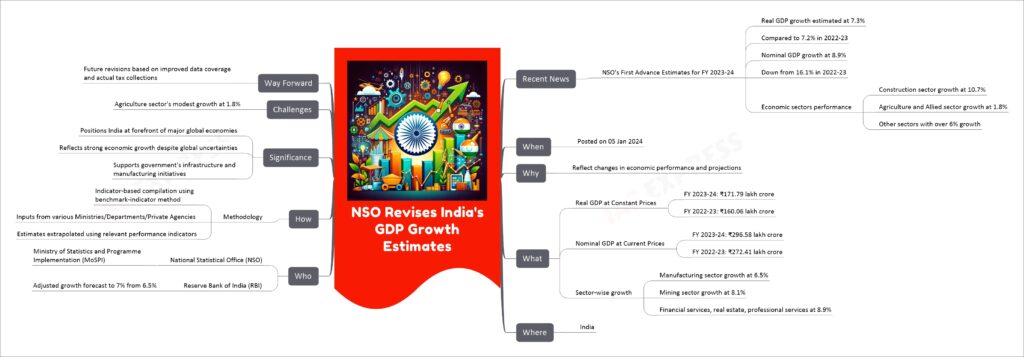
The National Statistical Office (NSO) has revised India’s GDP growth estimates for the fiscal year 2023-24, projecting a real GDP growth of 7.3% compared to 7.2% in 2022-23. This update showcases India’s economic resilience and a robust performance across several sectors, with the construction sector expected to see a notable growth of 10.7%. Despite global economic challenges, India continues to exhibit strong growth dynamics, underpinned by increased state spending and manufacturing activities. However, the agriculture and allied sector is projected to grow at a modest rate of 1.8%. These projections are based on the First Advance Estimates released by the NSO, which utilizes a comprehensive methodology incorporating inputs from various sectors and extrapolating estimates using relevant indicators.
India’s economic outlook remains positive, with the Reserve Bank of India (RBI) also adjusting its growth forecast to 7% from an earlier estimate of 6.5%, indicating favorable economic conditions and positive trends across sectors. The NSO’s advance estimates are crucial for understanding the direction of India’s economy and will be refined further as more data becomes available, ensuring an accurate reflection of the country’s economic health.
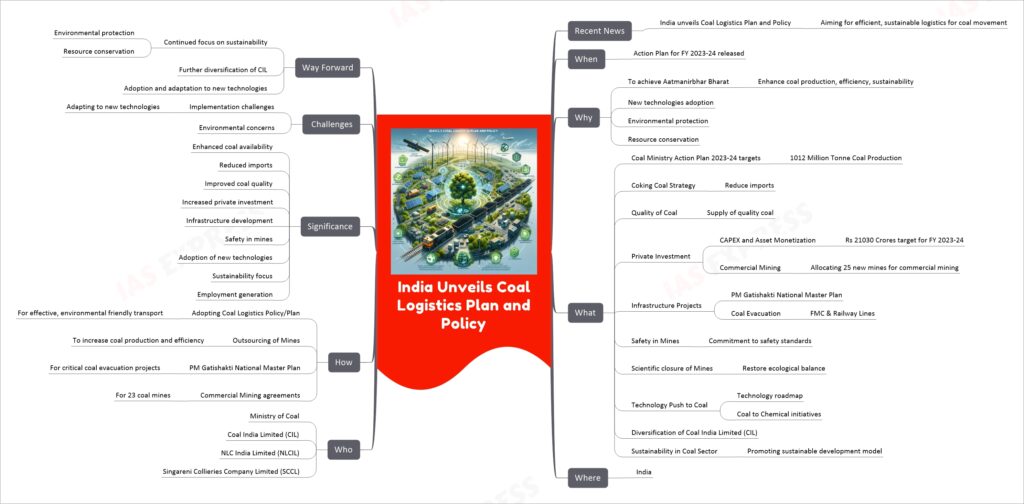
The Coal Logistics Plan and Policy unveiled by India for FY 2023-24 is a comprehensive strategy aiming to enhance coal production, efficiency, and sustainability. It encompasses a wide range of initiatives including the adoption of new technologies, environmental protection, and resource conservation. The plan targets a significant increase in coal production with an emphasis on reducing imports through a coking coal strategy, improving coal quality, and promoting private investment in the sector. Infrastructure development, safety in mines, technological advancements, and sustainability are key focus areas. The initiative is expected to have a positive impact on India’s coal sector’s growth trajectory, ensuring a sustainable future while addressing the challenges of implementation and environmental concerns.
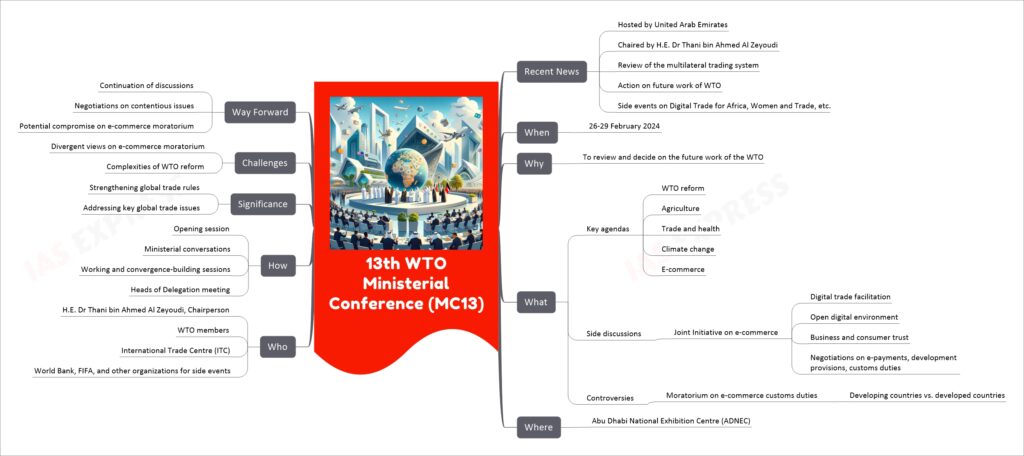
The 13th WTO Ministerial Conference (MC13), scheduled for 26-29 February 2024 in Abu Dhabi, United Arab Emirates, is a pivotal event aimed at reviewing the functioning of the multilateral trading system and deciding on the future work of the World Trade Organization (WTO). This conference brings together ministers from across the world to discuss critical global trade issues, including WTO reform, agriculture, trade and health, climate change, and e-commerce. A notable focus is on the e-commerce customs duties moratorium, a topic that has polarized developing and developed countries. While developing countries argue that the moratorium deprives them of much-needed revenue, developed countries and various business organizations support its continuation, citing studies that suggest imposing customs duties would be impractical and counterproductive. The MC13 also features significant side discussions, particularly on the Joint Initiative on e-commerce, aiming to address digital trade facilitation, the open digital environment, and business and consumer trust, among other areas. The conference is a critical platform for dialogue and decision-making on how to strengthen and adapt the global trading system to contemporary challenges.
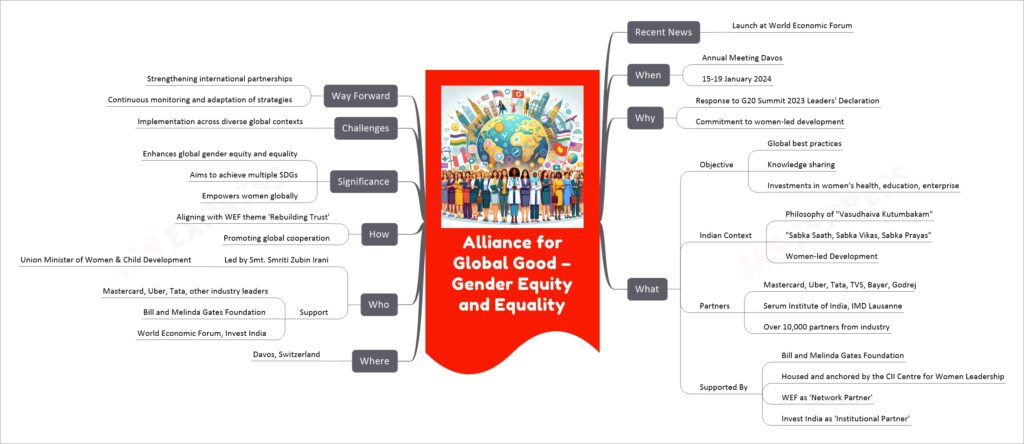
The Alliance for Global Good – Gender Equity and Equality, launched at the World Economic Forum (WEF) Annual Meeting in Davos in January 2024, signifies a major international effort led by India to promote gender equity and equality globally. This initiative, inspired by India’s commitment to women-led development and the G20 Summit 2023 Leaders’ Declaration, seeks to amalgamate global best practices, knowledge sharing, and investments in critical areas such as women’s health, education, and enterprise. With the support of industry giants like Mastercard, Uber, Tata, and others, as well as backing from the Bill and Melinda Gates Foundation, the alliance is poised to make significant strides towards achieving various Sustainable Development Goals (SDGs). The alliance emphasizes India’s guiding philosophy of “Vasudhaiva Kutumbakam” (One Earth, One Family, One Future) and aims to foster global cooperation and trust.
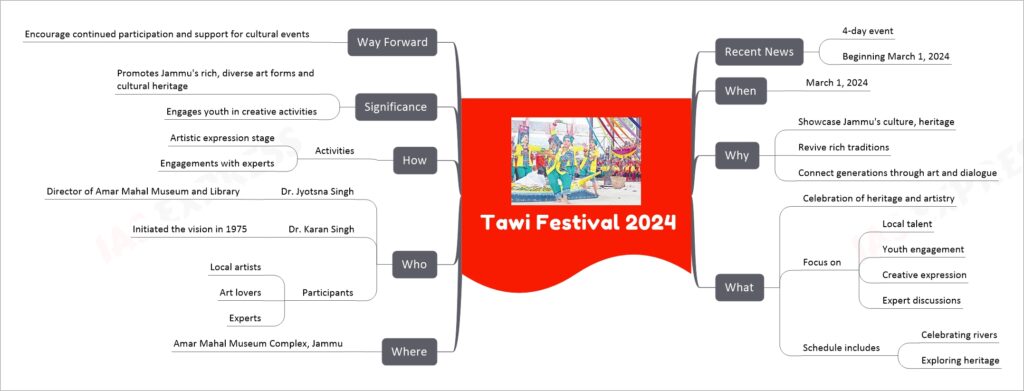
The Tawi Festival 2024 is designed as a grand celebration of Jammu’s rich cultural heritage and artistry, set to begin on March 1, 2024. This 4-day event aims to showcase the region’s diverse art forms and traditions, bridging generations through art and dialogue. It highlights the importance of local talent, youth engagement, and creative expression, with a focus on celebrating rivers and exploring the multifaceted aspects of heritage. Organized at the Amar Mahal Museum Complex in Jammu, the festival is a tribute to the vision initiated by Dr. Karan Singh in 1975, with Dr. Jyotsna Singh, the Director of Amar Mahal Museum and Library, playing a pivotal role in its realization. The festival emphasizes the importance of engaging with experts, offering a platform for artistic expression, and fostering discussions that contribute to the preservation and evolution of cultural narratives in the Jammu region.
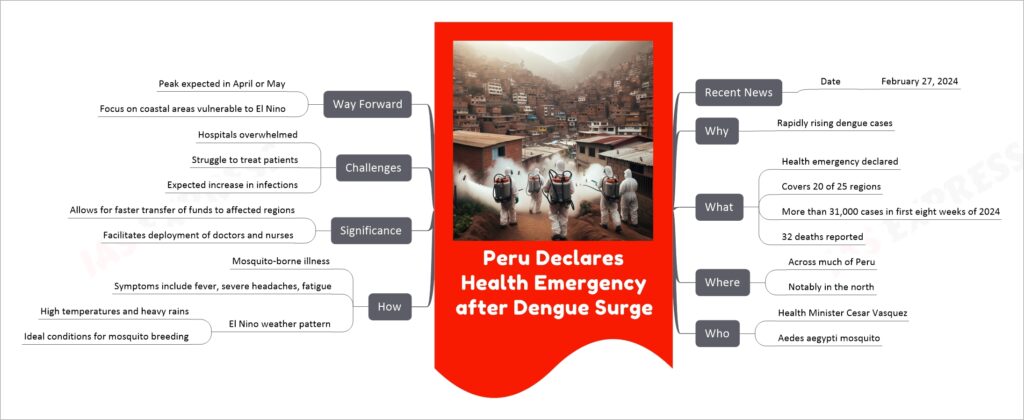
The recent surge in dengue fever cases in Peru has led to the declaration of a health emergency across much of the country, particularly affecting 20 of its 25 regions, as of February 27, 2024. This move comes in response to over 31,000 reported cases and 32 deaths in the early months of 2024. Health Minister Cesar Vasquez highlighted the role of the El Niño weather pattern in creating favorable conditions for the Aedes aegypti mosquito to breed, thereby exacerbating the spread of this mosquito-borne illness. Symptoms of dengue include fever, severe headaches, fatigue, nausea, vomiting, and body aches. The health emergency declaration facilitates the rapid allocation of resources and the deployment of medical personnel to combat the outbreak, which is especially severe in the northern parts of Peru, including areas like Piura and La Libertad, where the healthcare system is currently overwhelmed.
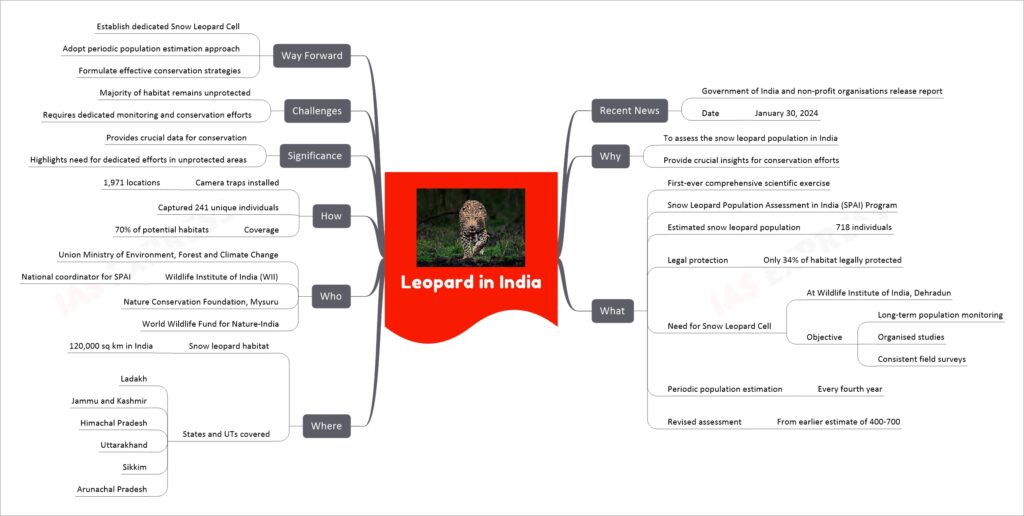
The report on the status of snow leopards in India, released on January 30, 2024, marked a significant scientific achievement as it presented the first-ever comprehensive assessment of the snow leopard population in the country. With an estimated count of 718 snow leopards, the study underscored the critical need for dedicated conservation efforts, given that only a third of their habitat is under legal protection. Spearheaded by the Wildlife Institute of India, with the support of the Union Ministry of Environment, Forest and Climate Change, the Nature Conservation Foundation, Mysuru, and the World Wildlife Fund for Nature-India, this initiative highlights the importance of establishing a dedicated Snow Leopard Cell for long-term monitoring and conservation strategies. The assessment, which utilized camera traps across various states and union territories, not only provides crucial data for preserving these vulnerable species but also calls for periodic population estimation to address threats effectively and ensure their survival.
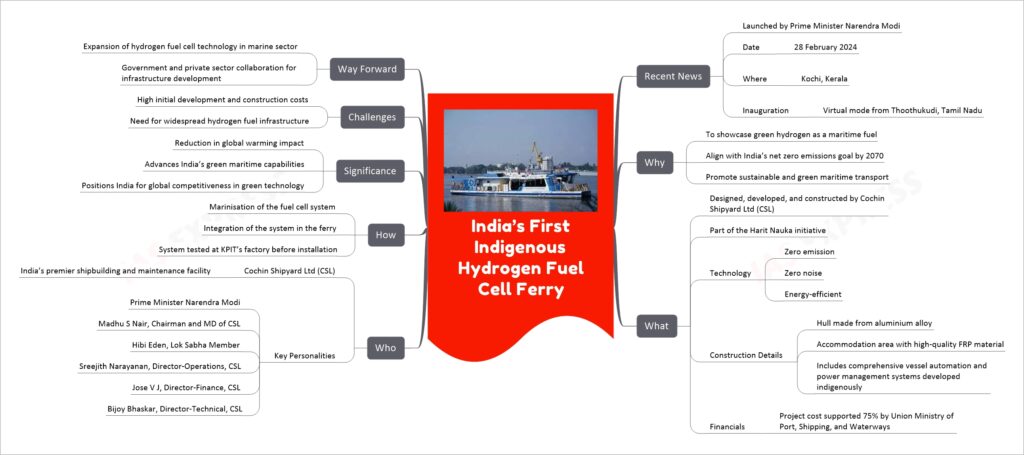
The launch of India’s first indigenously developed hydrogen fuel cell ferry marks a significant step towards sustainable and green maritime transport. Prime Minister Narendra Modi inaugurated this zero-emission and zero-noise vessel on 28 February 2024, in Kochi, Kerala, through a virtual ceremony from Thoothukudi, Tamil Nadu. This project, designed, developed, and constructed by Cochin Shipyard Ltd (CSL) under the Harit Nauka initiative, showcases the potential of green hydrogen as a maritime fuel, aligning with India’s commitment to achieving net zero emissions by 2070.
The ferry, which has its hull made from aluminium alloy and an accommodation area constructed with high-quality FRP material similar to metro train coaches, represents a pioneering initiative in India’s maritime sector. It’s equipped with a comprehensive vessel automation and power management system developed indigenously. The project, with 75% of its cost supported by the Union Ministry of Port, Shipping, and Waterways, is a testament to India’s growing capabilities in green technology and its ambition to lead in the global transition towards sustainable energy sources.
This development not only contributes to the reduction of global warming impacts but also positions India at the forefront of adopting green hydrogen technology in the maritime sector, offering a competitive advantage on the global stage. However, challenges such as high initial costs and the need for a widespread hydrogen fuel infrastructure need to be addressed. Moving forward, the expansion of hydrogen fuel cell technology in marine applications and collaboration between the government and the private sector for infrastructure development will be crucial for realizing the full potential of this initiative
If you like this post, please share your feedback in the comments section below so that we will upload more posts like this.
